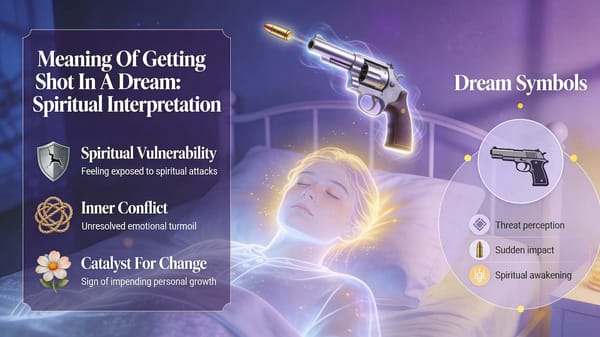Lucid Dreaming: Unlock the Secrets to Control Your Dreams

Have you ever found yourself in a dream so vivid, so real that you questioned the nature of reality itself? Welcome to the realm of lucid dreaming, where the boundaries between consciousness and the dreamscape blur, giving rise to an experience that is as unsettling as it is exhilarating. Lucid dreams, where the dreamer becomes aware that they are dreaming and often exerts control over the dream narrative, have fascinated humanity across cultures and epochs. Such dreams have been revered as gateways to self-discovery and creativity, each holding profound symbolic meaning and spiritual potential.

As we delve into the enigmatic world of lucid dreaming, we explore its prevalence and significance across time, unraveling its mysteries one dream scenario at a time. Buckle up as we embark on an exploration into the depths of the subconscious and beyond.
Overview
Lucid dreaming is an extraordinary phenomenon that many people experience at least once in their lifetime. It opens the door to a vast expanse of possibilities within the mind, offering a landscape where imagination and reality merge seamlessly. During a lucid dream, the dreamer becomes acutely aware of the fact that they are dreaming, a recognition that can bring about a sense of empowerment and revelation. This heightened state of awareness allows the individual to potentially steer the dream narrative, exploring endless scenarios and interacting with elements in ways that defy the rules of waking life.
The Symbolic and Spiritual Significance of Experiencing Lucid Dreams
In the realm of lucid dreaming, the symbolic and spiritual dimensions are rich with potential meaning. At its core, lucid dreaming may represent the dreamer’s burgeoning independence and desire for control over their own destiny. The ability to navigate one’s internal landscape with intention mirrors the journey of self-discovery and autonomy in the waking world.
Spiritually, lucid dreams are sometimes viewed as portals to heightened intuition and insight. Across various cultures, such dreams are often seen as an opportunity to engage with the subconscious mind, unlocking hidden truths and encouraging introspection. For the spiritually inclined, lucid dreaming can be regarded as an invitation to commune with the universal consciousness, offering a transformative pathway to enlightenment and personal growth.
What Do Different Lucid Dreaming Scenarios Mean?
The experience of lucid dreaming can manifest in a plethora of scenarios, each carrying its own unique interpretations depending on the context:
- Control and Mastery: A dreamer who takes complete control in their lucid dream might be expressing a deep-seated need for mastery over their circumstances in waking life. This could indicate a desire to tackle challenges head-on or manifest aspirations and hopes.
- Exploration and Discovery: If the lucid dream involves exploring unknown places or interacting with unfamiliar characters, it might reflect the dreamer’s thirst for adventure and learning. Such dreams could signal the conscious mind inviting the dreamer to step out of their comfort zone and embrace new experiences.
- Fear and Confrontation: Conversely, a lucid dream laden with fear or anxiety might highlight underlying stress or unresolved tensions. The ability to confront frightening elements within the dream could be the subconscious mind encouraging the dreamer to tackle these issues consciously and courageously.
- Transformation and Healing: Lucid dreams can also serve as a metaphor for healing and transformation, with dreamers embarking on journeys of personal evolution or encountering symbols of change and renewal.
Psychological Interpretations of Experiencing Lucid Dreams
From a psychological perspective, lucid dreaming has been the subject of various interpretations:
- Freudian Analysis: Sigmund Freud might view lucid dreams as an arena for repressed desires to manifest. In this context, becoming aware and in control during a dream could allow the subconscious to safely explore forbidden or suppressed urges.
- Jungian Perspective: Carl Jung would likely interpret lucid dreams as a dialogue with the collective unconscious, where archetypes and symbols emerge. Jungian psychology sees lucid dreaming as a means to integrate the self, harmonizing the conscious and unconscious mind.
- Reiki and Energy Perspectives: From a Reiki perspective, lucid dreams could be seen as an opportunity to cleanse energetic blockages. This belief posits that lucid dreaming facilitates the flow of life force, enhancing spiritual vitality and balance.
Common Causes and Factors Behind Experiencing Lucid Dreams
The experience of lucid dreaming often arises from various factors:
- Stress and Anxiety: High levels of stress and anxiety can stimulate the brain to achieve conscious awareness during dreams, akin to an internal coping mechanism.
- Significant Life Changes: Major transitions, such as moving to a new city, starting a new job, or entering a new relationship, might trigger lucid dreams as the subconscious mind works through adjustments.
- Desire for Change: A strong yearning for change or adventure in waking life might manifest through controlled dreams, providing the dreamer with a sense of agency and readiness.
- Unresolved Conflicts: Lucid dreams can sometimes echo unresolved conflicts, where the mind seeks resolution through conscious engagement within the dream.

Scientific Explanations for Experiencing Lucid Dreams in Dreams
Scientific studies provide intriguing insights into lucid dreaming:
- Neurological Activity: Lucid dreaming is linked to heightened activity in regions of the brain associated with self-awareness and problem-solving, such as the prefrontal cortex.
- Sleep Stages: Many lucid dreams occur during the REM (Rapid Eye Movement) stage of sleep, a phase characterized by vivid dreaming.
- Sensory Input and Sleep Disturbances: External stimuli, such as noise or physical discomfort, can sometimes trigger a lucid state as the brain seeks to understand the intrusion within the dream context.
Coping Strategies for Experiencing Lucid Dreams in Dreams
For those who find lucid dreams unsettling or wish to harness their potential, several coping strategies can be employed:
- Dream Journaling: Keeping a dream journal helps document and reflect upon these experiences, facilitating insight and understanding.
- Mindfulness and Relaxation Techniques: Practices such as meditation and deep breathing can reduce stress and promote a more balanced approach to lucid dreaming.
- Seek Professional Guidance: Consulting with a therapist or dream analyst can provide valuable perspectives and coping strategies, especially for recurring or troubling lucid dreams.
- Sleep Hygiene: Maintaining a consistent sleep schedule and creating a restful bedtime routine can promote healthier sleep patterns and mitigate sleep disturbances.

Summary & Final Thoughts
In the realm of dreams, lucid dreaming stands out as a beacon of self-awareness and exploration. These conscious dream experiences offer profound insights and opportunities for personal growth, acting as mirrors to our deepest desires and challenges. By reflecting on the symbolic, psychological, and scientific aspects of lucid dreams, we begin to unravel their potential meanings, drawing valuable lessons that transcend the boundaries of the dream world.
As you navigate your own dreams, consider the messages they may hold. These nocturnal journeys might reveal hidden aspects of your waking life that crave attention and transformation. Embrace the mysteries of lucid dreaming, and perhaps you will discover new dimensions of your consciousness and creativity, waiting to be explored.
You can read our blog post related to out-of-body experiences in dreams.
FAQ: Navigating the Mysteries of Lucid Dreaming
What is the significance of lucid dreaming?
Lucid dreaming is a unique state of sleep where the dreamer is aware they are dreaming and often has control over the dream's narrative. This conscious dreaming provides a fascinating window into the subconscious mind, allowing for exploration, insight, and personal empowerment.
What are the symbolic and spiritual dimensions of lucid dreams?
Spiritually, lucid dreaming is often esteemed as a state of heightened consciousness that helps navigate the subconscious realm. It is considered a gateway to intuition, self-discovery, creativity, and deeper insight into one's true self.
What do different lucid dreaming scenarios represent?
- Control and Mastery: Reflects a personal desire for self-control or navigating life.
- Exploration and Adventure: Signifies a thirst for knowledge, growth, or new experiences.
- Fear and Confrontation: Indicates hidden anxieties or unresolved conflicts.
- Transformation and Healing: Represents personal growth and the healing process.
How do psychological theories interpret lucid dreams?
- Freudian Interpretation: Freud might suggest lucid dreams provide access to repressed desires or conflicts.
- Jungian Perspective: Jung could view lucid dreaming as communication with the collective unconscious, highlighting personal integration or self-realization.
- Reiki/Energy Healing Perspective: In this view, lucid dreams could symbolize energy balance, healing, or spiritual growth.
What are common causes and factors behind experiencing lucid dreams?
Lucid dreams can be triggered by high-stress levels, major life transitions, a pronounced desire for adventure or novelty, or emotional conflicts in need of resolution.
What are the scientific explanations for lucid dreaming?
Scientifically, lucid dreaming is often associated with increased brain activity in regions linked to self-awareness during REM sleep. Lucid dreams can be triggered by external sensory stimuli or due to irregular sleep schedules.
What coping strategies can be employed for lucid dreams?
Strategies can include maintaining a dream journal to track patterns, seeking professional counseling for troubling dreams, practicing mindfulness or relaxation techniques to manage stress, and establishing healthy sleep habits for better dream recall and sleep quality.
How can lucid dreaming impact personal growth?
Lucid dreaming offers a unique opportunity for personal growth and self-exploration. It gives dreamers a chance to confront their fears, realize their desires, and gain insights into their true self. These dreams can highlight areas requiring attention or transformation, assisting individuals in their journey towards self-knowledge and personal development.




